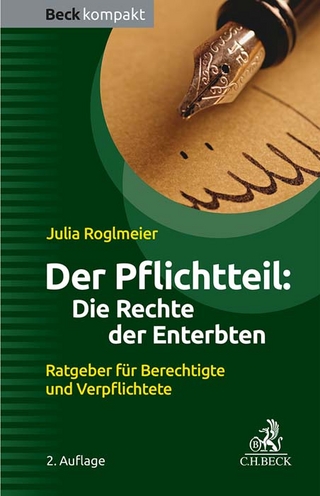
The Liability Century
Insurance and Tort Law from the Progressive Era to 9/11
Seiten
2008
Harvard University Press (Verlag)
978-0-674-02768-8 (ISBN)
Harvard University Press (Verlag)
978-0-674-02768-8 (ISBN)
Kenneth Abraham explores the development and interdependency of the tort liability regime and the insurance system in the United States during the twentieth century and beyond, including the events of September 11, 2001.
From its beginning late in the nineteenth century, the availability of liability insurance led to the creation of new forms of liability, heavily influenced expansion of the liabilities that already existed, and continually promoted increases in the amount of money that was awarded in tort suits. A “liability-and-insurance spiral” emerged, in which the availability of liability insurance encouraged the imposition of more liability, and, in turn, the imposition of liability encouraged the further spread of insurance.
Liability insurance was not merely a source of funding for ever-greater amounts of tort liability. Liability insurers came to dominate tort litigation. They defended lawsuits against their policyholders, and they decided which cases to settle, fight, or appeal. The very idea behind insurance––that spreading losses among large numbers of policyholders is desirable––came to influence the ideology of tort law. To serve the aim of loss spreading, liability had to expand.
Today the tort liability and insurance systems constantly interact, and to reform one the role of the other must be fully understood.
From its beginning late in the nineteenth century, the availability of liability insurance led to the creation of new forms of liability, heavily influenced expansion of the liabilities that already existed, and continually promoted increases in the amount of money that was awarded in tort suits. A “liability-and-insurance spiral” emerged, in which the availability of liability insurance encouraged the imposition of more liability, and, in turn, the imposition of liability encouraged the further spread of insurance.
Liability insurance was not merely a source of funding for ever-greater amounts of tort liability. Liability insurers came to dominate tort litigation. They defended lawsuits against their policyholders, and they decided which cases to settle, fight, or appeal. The very idea behind insurance––that spreading losses among large numbers of policyholders is desirable––came to influence the ideology of tort law. To serve the aim of loss spreading, liability had to expand.
Today the tort liability and insurance systems constantly interact, and to reform one the role of the other must be fully understood.
Kenneth S. Abraham is David and Mary Harrison Distinguished Professor of Law, University of Virginia.
Preface Introduction 1. The Dawn of a New Era 2. The Original Tort Reform: Workers Compensation 3. Drivers, Lawyers, and Insurers: A Costly Combination 4. Medical Malpractice Liability and the Health Insurance System: The Physicians' Dilemma 5. Products Liability, Environmental Liability, and the Long Tail 6. Which Came First, the Liability or the Insurance? 7. Collateral Sources, Mega-Liability, and the Stresses of 9/11 8. Recurring Themes, Sobering Constraints Notes Index
| Erscheint lt. Verlag | 30.4.2008 |
|---|---|
| Verlagsort | Cambridge, Mass |
| Sprache | englisch |
| Maße | 156 x 235 mm |
| Themenwelt | Recht / Steuern ► Allgemeines / Lexika |
| Recht / Steuern ► EU / Internationales Recht | |
| Recht / Steuern ► Privatrecht / Bürgerliches Recht ► Besonderes Schuldrecht | |
| ISBN-10 | 0-674-02768-X / 067402768X |
| ISBN-13 | 978-0-674-02768-8 / 9780674027688 |
| Zustand | Neuware |
| Informationen gemäß Produktsicherheitsverordnung (GPSR) | |
| Haben Sie eine Frage zum Produkt? |
Mehr entdecken
aus dem Bereich
aus dem Bereich
steueroptimiert übertragen und den Schenker absichern
Buch | Softcover (2023)
C.H.Beck (Verlag)
CHF 20,85
Vertragliche Schuldverhältnisse
Buch | Softcover (2022)
C.F. Müller (Verlag)
CHF 36,40
Ratgeber für Berechtigte und Verpflichtete
Buch | Softcover (2024)
C.H.Beck (Verlag)
CHF 16,65


